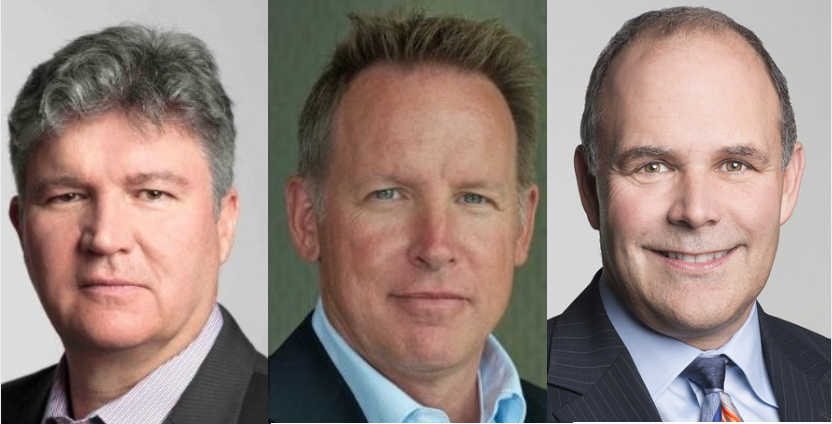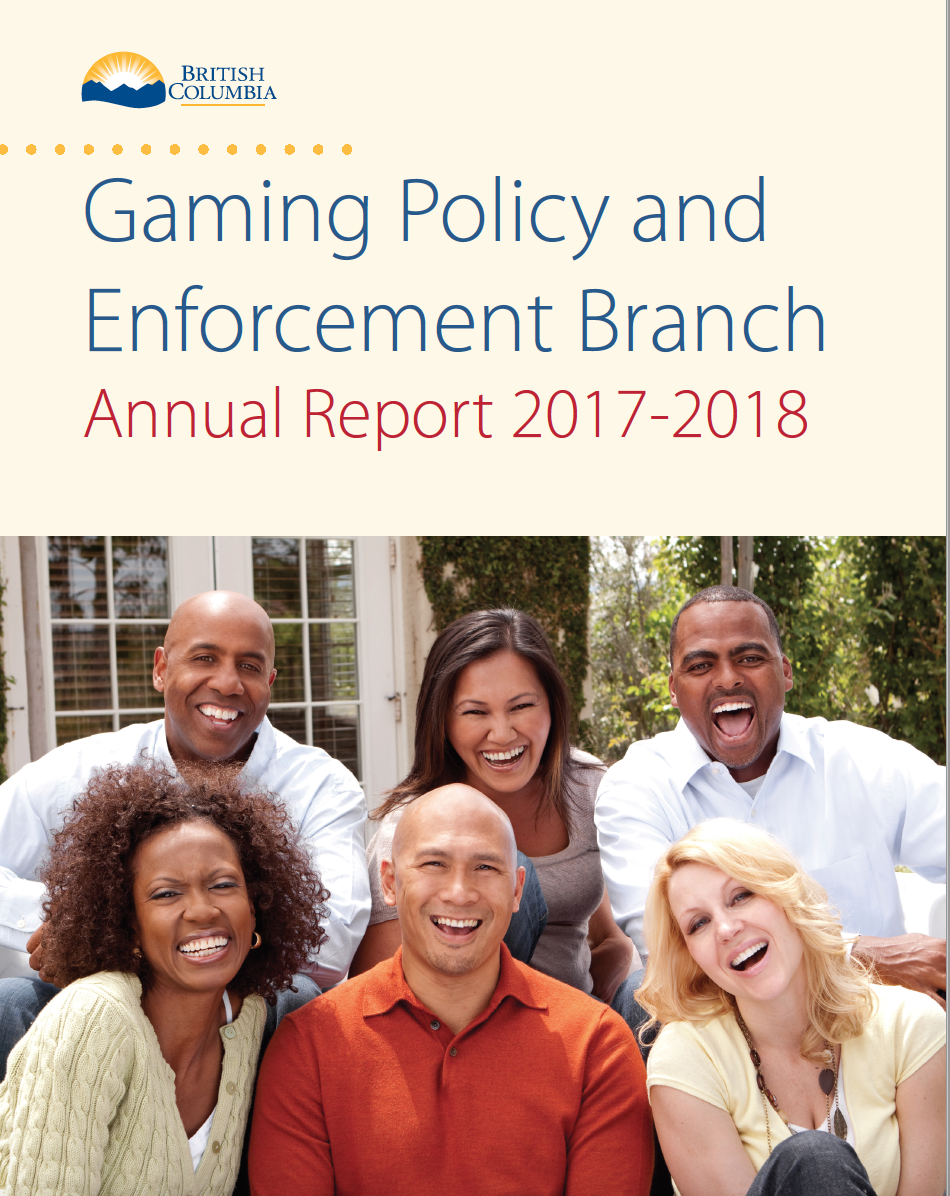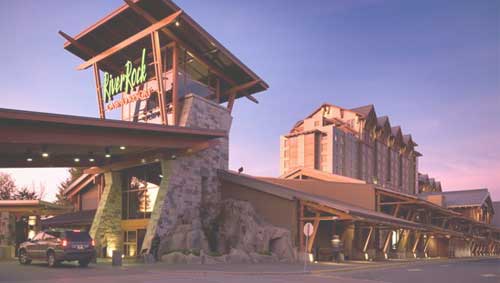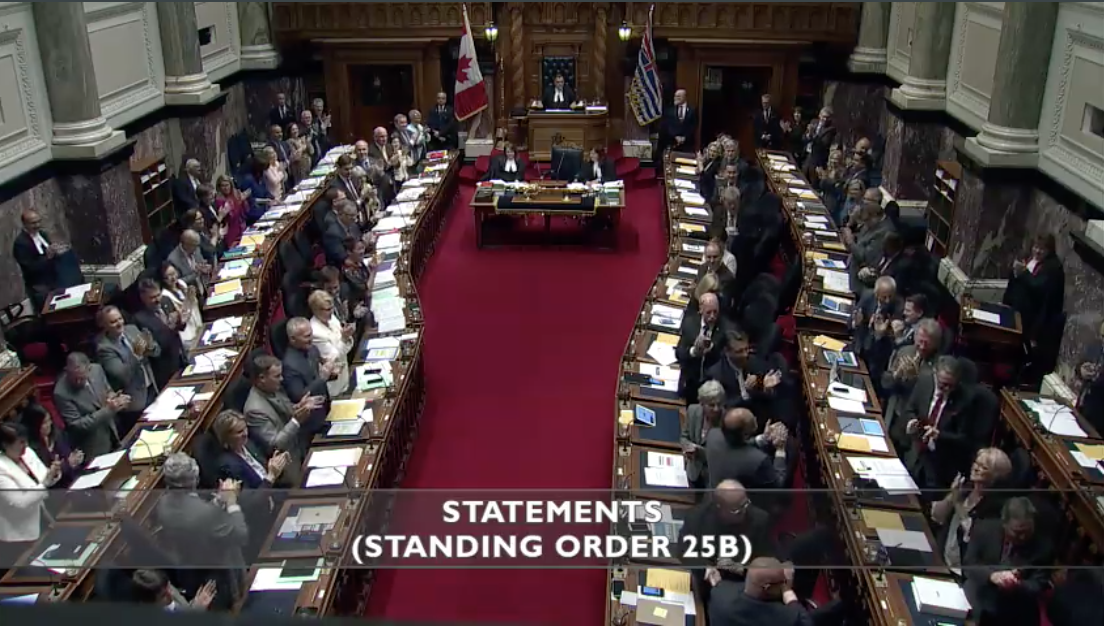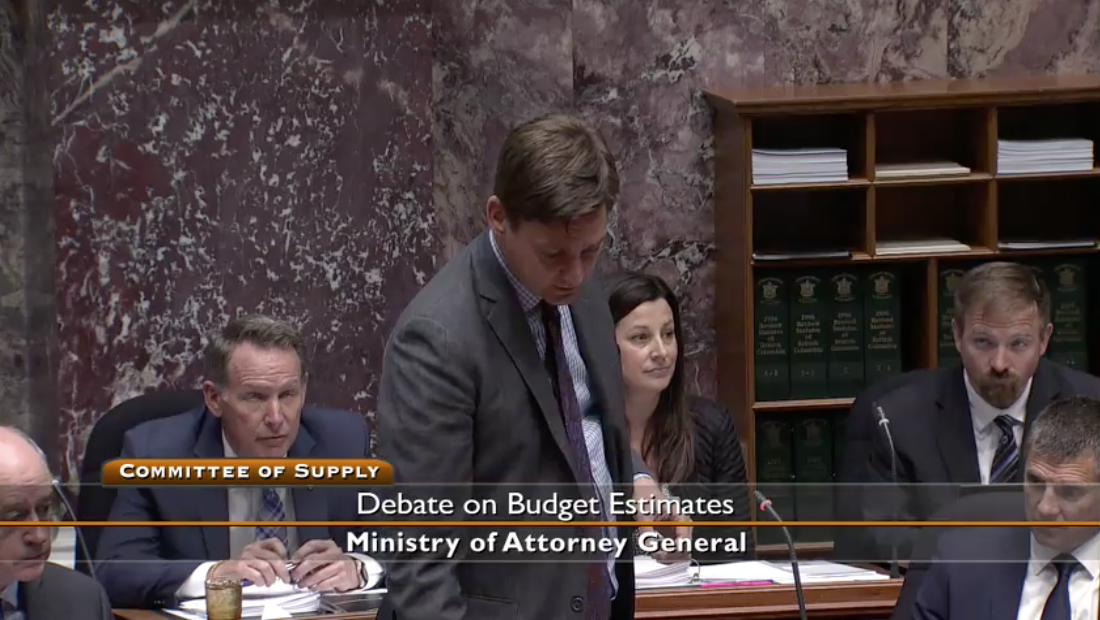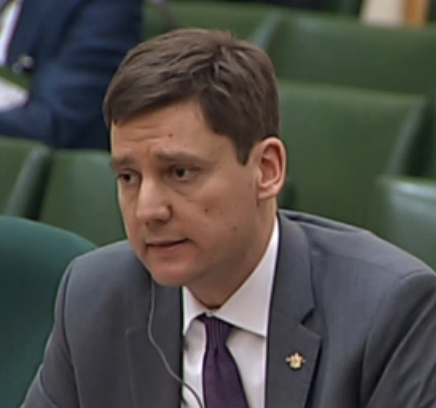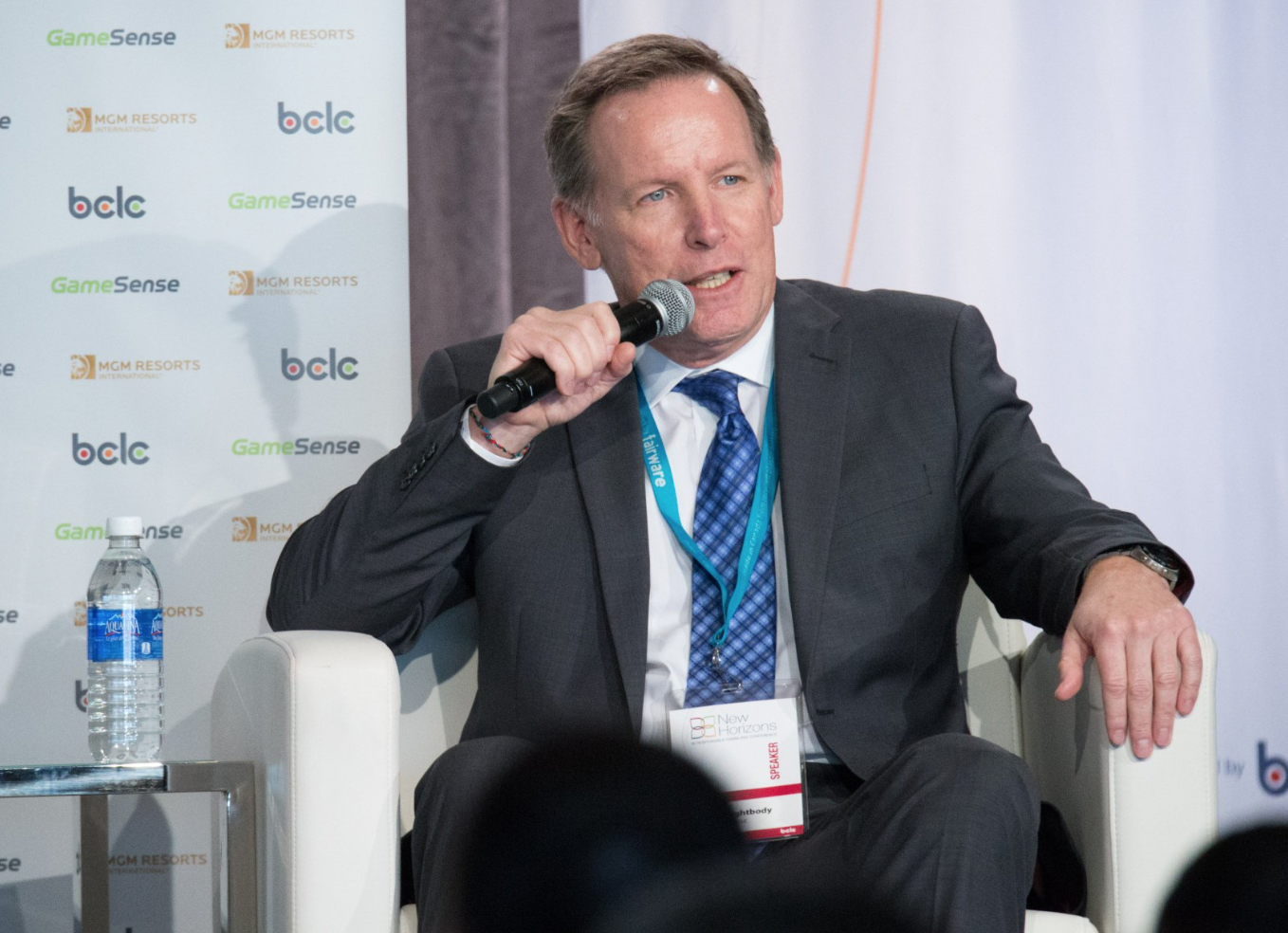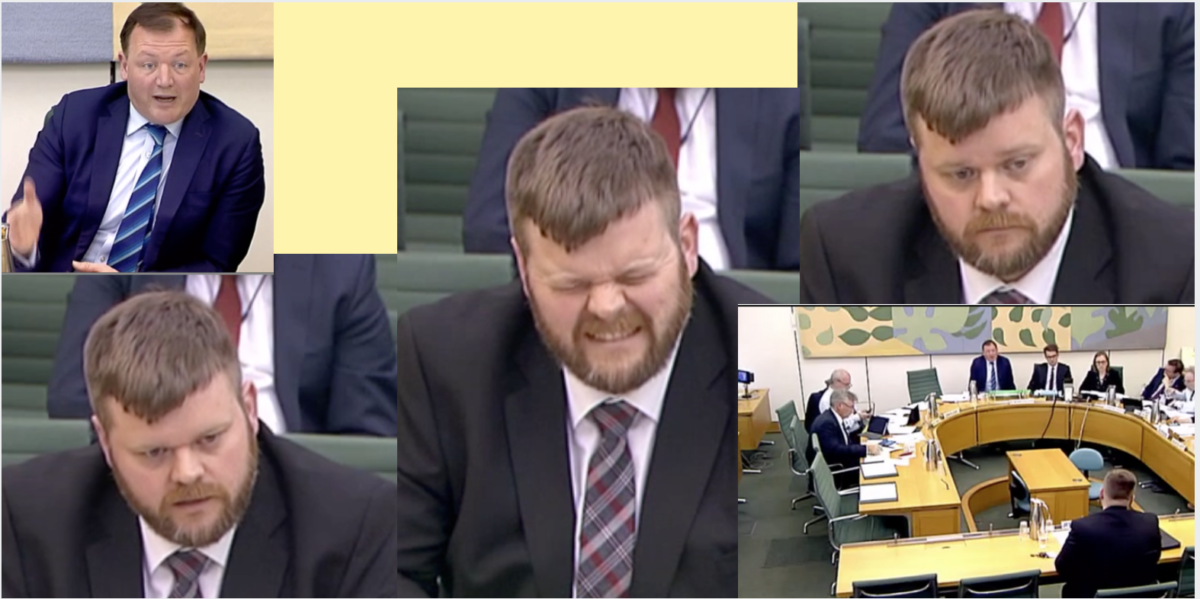Exclusive: While B.C.’s government was in flux, big-spending BCLC bosses went on a junket to Macau
Bob Mackin
B.C. Lottery Corporation’s three amigos got away from the Kamloops-headquartered Crown corporation for an Asian junket, the week after the May 2017 provincial election.
CEO Jim Lightbody, security director Robert Kroeker and casinos head Brad Desmarais jetted to the G2E Asia 2017 convention from May 16-18 in Macau, the tiny, former Portuguese colony known for flashy Las Vegas-style casinos and links to triads and corrupt government officials from Mainland China.
Documents released under the freedom of information law show they spent almost $16,000 on flights, hotels and meals.
The same trio made combined expense claims for almost $170,000 in the fiscal year that ended March 31, 2017.

BCLC’s Desmarais (left), Lightbody and Kroeker (BCLC)
The G2E Asia convention included sessions on Asian markets, database mining, casino yield optimization, e-sports and online casinos.
There were also sessions on anti-money laundering and financial crime prevention, but it was not clear whether any of the trio attended the sessions that featured PricewaterhouseCoopers’ experts Vasilios Chrisos and Mary Wong.
theBreaker asked BCLC for expense reports and copies of text handouts, business cards received, handwritten notes, digital files, and audio recordings from the convention. Only the trio’s expenses, registration documents and business cards they gathered were disclosed.
BCLC censored the names of the persons from the copies of those business cards.
The companies named on the business cards included: SGI Gaming, Macau; MGM Macau; Galaxy Entertainment Group, Macau; Aristocrat, Macau; Sociedade de Jogos de Macau S.A.; Oracle, Hong Kong; Walker Digital Table Systems, Macau; Macauslot; Hydako, Seoul; GPI; Oracle; and Aristocrat in Las Vegas.
Kroeker continued on after Macau to Singapore from May 19-22, where he stayed at the Marina Bay Sands and visited the Resort World Casino and Galaxy Casino.
Lightbody was the Crown corporation’s vice-president in charge of casinos from 2011 until 2014 when he was promoted to replace Mike Graydon, who quit to work for the company behind the Parq Casino beside B.C. Place Stadium. He chairs the B.C. Sports Hall of Fame and Museum, which inducted its class of 2018 at Parq. For the year-ended March 31, 2017, Lightbody was paid $338,405 plus $64,109 in expenses.
Desmarais, a former senior officer with the RCMP and Vancouver Police, joined BCLC in early 2013 as vice-president of corporate security and compliance. He took over the casino division in mid-2015. His 2016-2017 pay totalled $243,260 plus $53,791 in expenses.
Kroeker is a former executive director of B.C.’s Civil Forfeiture Office and former vice-president of security at Great Canadian Gaming. In a 2015 interview with Business in Vancouver, he said that money laundering does not happen at Great Canadian’s facilities, including flagship River Rock Casino Resort. Kroeker, a Justice Institute board member, submitted receipts for $51,714 in expenses on top of his $235,590 pay packet for 2016-2017.
In April, theBreaker asked Attorney General David Eby whether he had confidence in the executive leadership at BCLC, amid B.C.’s casino money laundering scandal, and whether any changes were on the horizon.
Said Eby: “I’ve been working closely with the executive at BCLC throughout the [Peter] German review and will continue to work closely with them as we work to implement the recommendations that he has put forward. Mr. German’s report will speak for itself, in terms of what exactly the issues were he identified in his review, and I look forward to releasing it as quickly as possible.”
On May 31, Eby replaced former Socred minister Bud Smith as chair of BCLC with Peter Kappel, an accountant and investment banker who is also a director of PartnershipsBC.
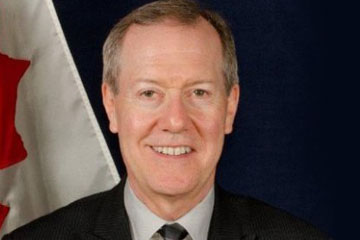
Anti-money laundering expert Peter German.
Eby appointed anti-money laundering expert German late last September after releasing a 2016 consultant’s report that had been suppressed by the previous BC Liberal government. The MNP report said gamblers from China used underground banks to bring large volumes of potentially dirty money to play at River Rock.
German submitted his report on March 31 and it has yet to be released.
theBreaker was first to report that criminology professor John Langdale warned an Australian police intelligence conference last November about the “Vancouver model” of money laundering. Langdale told the conference that the “Vancouver model” involved transnational drug trafficking and capital flight from China, gambling in B.C. casinos and investment in Canadian real estate.
Key to the scheme are B.C.’s Chinese sister province Guangdong, nearby financial centre Hong Kong and gambling haven Macau.
Support theBreaker.news for as low as $2 a month on Patreon. Find out how. Click here.
BCLC Macau FOI .pdf by BobMackin on Scribd
Bob Mackin B.C. Lottery Corporation’s three amigos got






